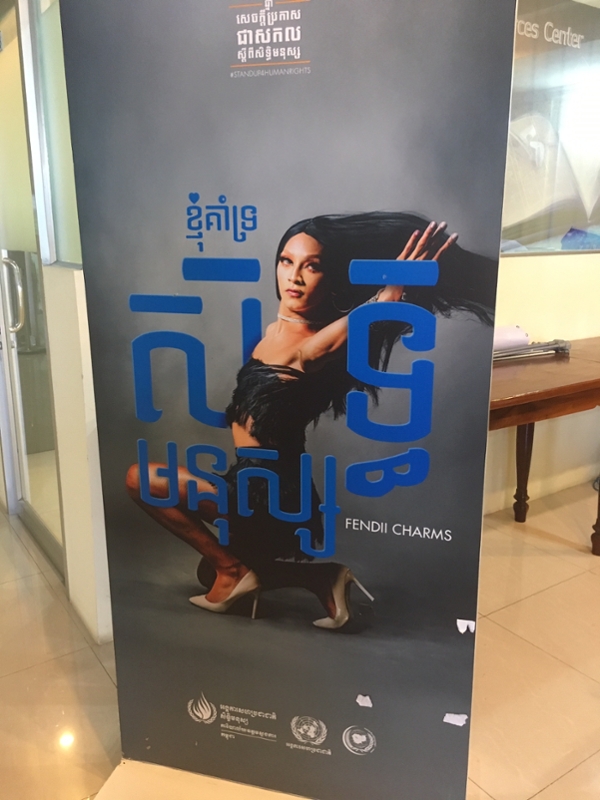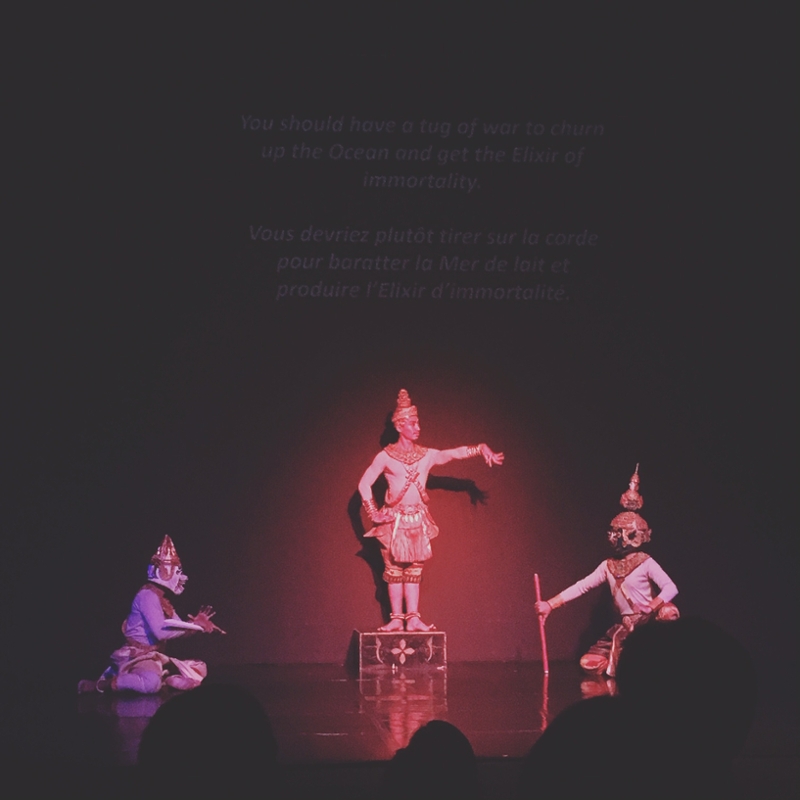Week 4: Meeting with the Bar President; Cambodian Living Arts
The first milestone of our UNDEF project “Ensuring the Right to Legal Representation in Cambodia” is a lawyer training that will 1) develop trainees’ core criminal defense skills such as cross-examination and closing arguments, and 2) mark the launch of iConnectJustice, IBJ’s new smartphone app that connects legal aid defense lawyers across the country with local clients in need. That training is coming up in the beginning of July, so there has been a lot to prepare. This week, most importantly, we needed to coordinate with the Bar Association of the Kingdom of Cambodia (BAKC), our partner in the event, to set the dates, agenda, and size of the training.
Cambodia Country Director Ouk Vandeth is close friends with the President of BAKC, Suon Visal. The two met when they trained with IBJ founder Karen Tse in 1994. Like Mr. Vandeth, Suon Visal has extensive experience as a defense lawyer, and believes in the importance of ensuring access to justice. Notably, Mr. Visal was part of the defense team for Nuon Chea at the Khmer Rouge Tribunal. He was re-elected for a second two-year term as Bar President in October, 2018. Mr. Vandeth had been in touch with Mr. Visal about the lawyer training, but after a conference call with IBJ headquarters in Geneva, it seemed like a meeting was in order.
On Wednesday, Simon and I accompanied Mr. Vandeth to a gathering of civil society organizations at the Cambodia Office of the United Nations High Commissioner for Human Rights. We were there to discuss the Joint Monitoring Indicators on Legal and Judicial Reform, developed by the Rule of Law Unit at the OHCHR. In addition to input on the content of the list, the OHCHR sought pledges from the civil society organizations involved in rule of law to support judicial reform objectives over the coming five-year period. I suggested that the roundtables IBJ Cambodia has planned for November 2019 and March 2020—which will bring government officials together with other legal stakeholders to strategize about using iConnectJustice in the effort to ensure access to justice—might be a great opportunity to advocate for increased legal aid funding, one of the methods proposed by the OHCHR to achieve judicial reform. Mr. Vandeth was enthusiastic about this idea, as was the Country Representative.
In any case, after an interesting and successful meeting at the OHCHR, Simon and I expected to head back to the office. Instead, Mr. Vandeth said that we’d go to meet the Bar President, Mr. Visal. He had invited us to lunch. So, we embarked on the long drive from the center of Phnom Penh to the northern district that houses the Bar Association. We arrived at a large, air-conditioned Chinese restaurant, and the host escorted us to a private upstairs room. Although we were alone at first, several bar association lawyers came in after us, and then the Bar President himself. The lawyers (all men) began a lively conversation in Khmer, and waiters brought plates and plates of meat, along with jasmine tea and rice. Mr. Visal was working on signing a huge pile of documents his colleagues had delivered to him. When I wasn’t eating, the lawyers caught on that something might be up, and laughed uproariously when I explained that I was vegetarian. It was in good humor, however, and they ordered me some vegetables.
Finally, Mr. Visal finished going through his pile of documents, and Mr. Vandeth handed him our training agenda. The UNDEF grant requires only that 25 lawyers attend each of two trainings, but based on Mr. Vandeth’s prior conversations with Mr. Visal, we had an inkling he might like to send a larger number of lawyers from the Bar Association. Mr. Visal now let us know that he wanted 80 people to attend. One solution was to combine the two one-day trainings into one two-day training. Mr. Visal approved of this, and we discussed adding training sessions on case preparation and defense theory in the extended time frame. We also confirmed that the Bar Association would host the training. Mr. Visal then requested that we send him the training materials, and our meeting was over. Sadly, we left before dessert.

A human rights poster campaign with local celebrities (like this drag queen!) at the OHCHR
In My Time Off
On Thursday, I went with friends to see a traditional dance performance by the Cambodian Living Arts dance troupe. Cambodian Living Arts was created with the goal of preserving traditional music and dance, in danger of being lost as a result of the Khmer Rouge genocide. The founder emphasizes that teaching and celebrating music and dance contributes to the country’s process of healing from decades of war and trauma. Moreover, dancers in the troupe are able to make a living through their performances, which occur daily at the National Museum. The show, which featured dances centering on ancient Khmer legends, village life, and native Cambodian animals, was astonishingly beautiful and entertaining to boot.

Cambodian Living Arts performers in a scene from a legend